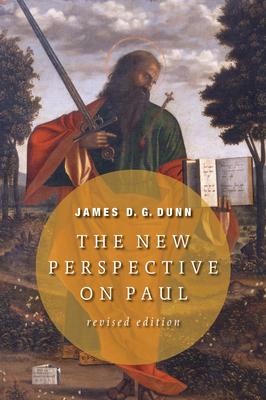This collection of essays highlights a dimension of Paul's theology of justification that has been neglected -- that his teaching emerged as an integral part of his understanding of his commission to preach the gospel to non-Jews and that his dismissal of justification "by works of the law" was directed not so much against Jewish legalism but rather against his fellow Jews' assumption that the law remained a dividing wall separating Christian Jews from Christian Gentiles.
James Dunn seeks to carry forward the debate on Jewish soteriology, on the relation of justification by faith to judgment "according to works," on Christian fulfillment of the law, and on the crucial role of Christ, his death and resurrection. Full of detail and intriguing thought, Dunn's collection will enlighten any scholar of the New Testament.

This collection of essays highlights a dimension of Paul's theology of justification that has been neglected -- that his teaching emerged as an integral part of his understanding of his commission to preach the gospel to non-Jews and that his dismissal of justification "by works of the law" was directed not so much against Jewish legalism but rather against his fellow Jews' assumption that the law remained a dividing wall separating Christian Jews from Christian Gentiles.
James Dunn seeks to carry forward the debate on Jewish soteriology, on the relation of justification by faith to judgment "according to works," on Christian fulfillment of the law, and on the crucial role of Christ, his death and resurrection. Full of detail and intriguing thought, Dunn's collection will enlighten any scholar of the New Testament.